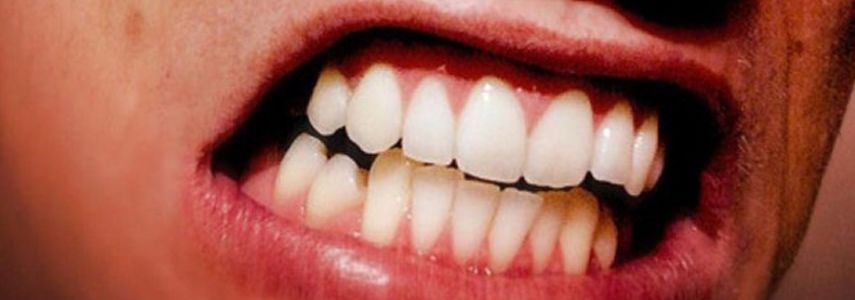Grinding your teeth by rubbing the upper arch with the lower one is a widespread activity that we often carry out even unconsciously during the day. This activity is called bruxism and is particularly common among children, but generally also in adults during the night. But what exactly is it about? What are the causes and consequences? Are there any remedies?
Definition of bruxism and its various forms
In this article we will try to give exhaustive answers to these questions to definitively shed light on an activity, in some cases better said a craze, that each of us has done at least once in our lives.
Bruxism, as we said, consists of grinding the teeth by rubbing the upper arch against the lower one or squeezing the jaw with a certain force. It is a fairly frequent condition that depends on the involuntary contraction of the chewing muscles. The most widespread moment of this phenomenon is at night.
Who has never noticed someone gritting their teeth while sleeping and making strange sounds? It must have happened to us to do it unconsciously and to wake up with a strange and inexplicable muscle soreness and headache. Nocturnal bruxism is classified as a sleep disorder and, in the long run, if not corrected or treated in time, it can cause wounds on the tongue and lips, but above all ruin the teeth. There are three forms of bruxism:
- Nocturnal bruxism: occurs unconsciously during sleep. It usually lasts a few seconds but can also repeat itself several times during our night’s rest;
- Daytime bruxism: sometimes this bad habit can manifest itself as a consequence of the physiological act of swallowing. The muscles that favor spontaneous swallowing are forced to make a consistent effort to bring the jaw back to the right position. For this reason the teeth are forced to follow the movements of the jaw and to follow the masticatory movements causing bruxism;
- Bruxism in children: rather widespread activity during sleeping hours in the little ones. It usually has no consequences and in most cases disappears spontaneously over time. This disorder is linked to short and sudden sleep interruptions which are very frequent in children and favor episodes of bruxism. In this case, the child should be helped to rest better.
Causes and consequences of bruxism

There are several factors that can cause this unawareness disorder that affects about 30% of the population, therefore, almost one in three people. Among these there is a malformation of the jaw, a malocclusion of the teeth, psychological discomfort, stress and anxiety. Even taking medications can cause bruxism which is sometimes related to certain chemicals. Antidepressants and antipsychotics, for example, are closely related to this disorder. As written before, the consequences can be multiple.
Bruxism, if neglected, causes serious damage, shortening and / thinning of the teeth, the onset of caries, hypersensitivity to heat and cold. In the most serious cases, the patient could also suffer damage to the alveolar bone and possible detachment of the gums. Very common consequences of bruxism are also frequent facial muscle pain, headaches, buzzing, migraine and muscle tension due to excessive nocturnal activity carried out by muscles that work and are set in motion when they should be at rest. Then there is the temporomandibular joint (TMJ) which is stressed disproportionately, sometimes suffering even significant damage over time.
Remedies and treatments. When to contact a specialist
There are no targeted and specific treatments to solve the problem but you can still try to limit the damage. It is very important to identify the cause of this disorder. If it is caused by anxiety and stress, for example, it will be important to adopt relaxation techniques and solve the psychological problem at the root, or at least try.
One way to protect your teeth is to use a bite, a specific device that limits the damage caused by nocturnal grinding and abrasion of the enamel. The use of the bite favors the relaxation of the muscles used for chewing. In more serious cases where the disorder has caused dental erosion or gingivitis, it will be necessary to intervene with a reconstruction or to reduce the ongoing inflammation.
In the meantime, the concomitant use of the bite remains advisable. If you are unable to correct the problem and carry it on for too long, it may happen that the injuries to the teeth could evolve into serious forms. In fact, cases of falling and breaking of the teeth, alteration of sensitivity to heat and cold and difficulty in opening the mouth have been reported. Attention, then! If you find yourself suffering from any ailment mentioned in this article or if you have any doubts about whether you suffer from bruxism, contact the Sanident Center in Milan, in via Settembrini, 6.
Book a first visit without obligation in which a specialist will be able to evaluate the symptoms and the relationship between the two dental arches, as well as identify any occlusal pathologies or bone anomalies.









